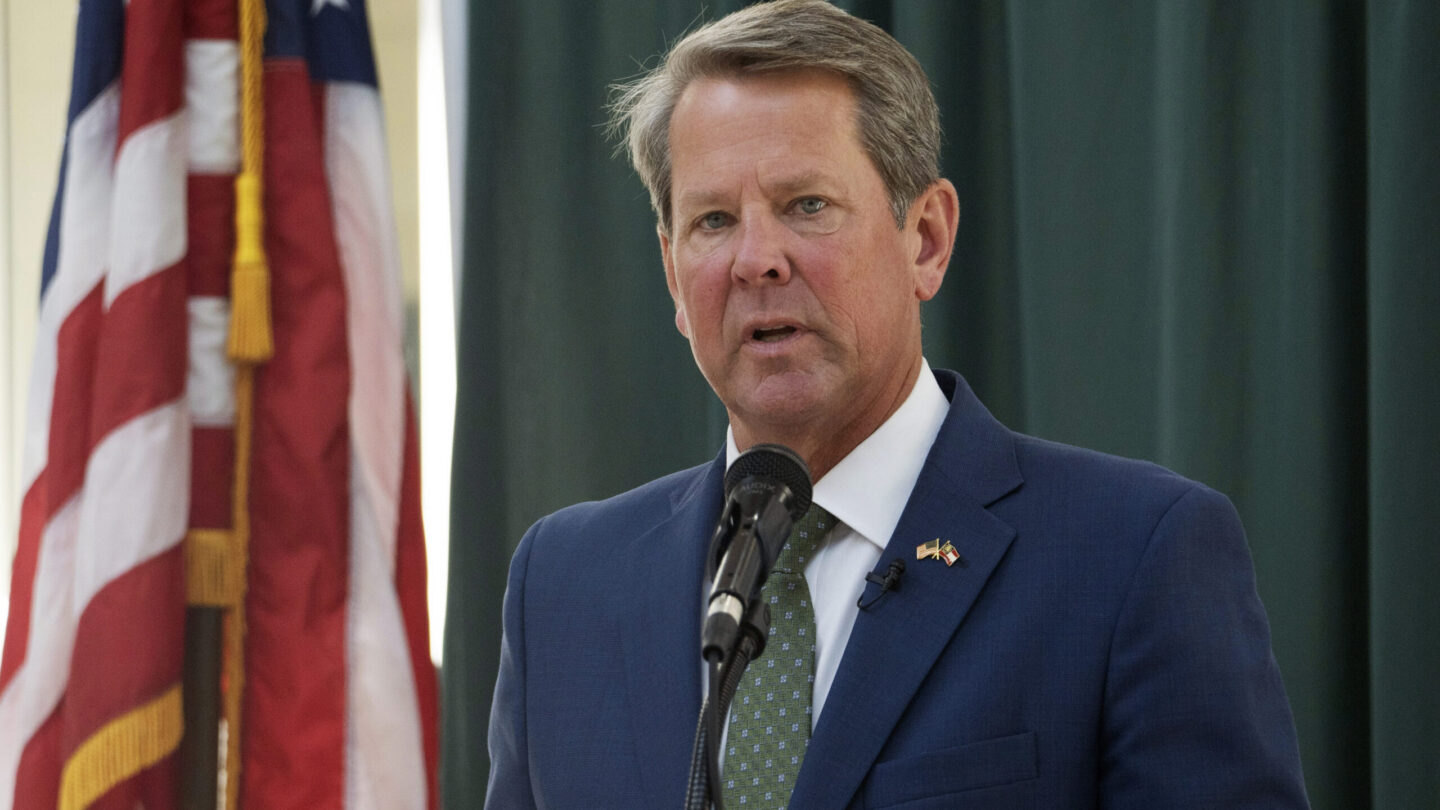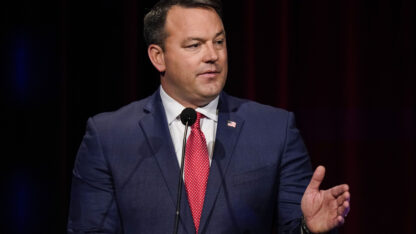Georgia’s Brian Kemp is scheduled to be sworn in for a second term as governor Thursday, promising across-the-board pay raises for state employees and public school teachers while questions linger about his long-term legacy even as he rides high politically.
The Republican plans to use his inaugural address to propose further pay raises, according to draft remarks viewed by The Associated Press, although the exact amount won’t be unveiled until he speaks Thursday.
The 59-year-old Kemp begins his second term atop Georgia’s political world. He rode his stewardship of the economy to a big win over Democrat Stacey Abrams, even though Abrams again outspent Kemp.
With a new House speaker and lieutenant governor, Kemp is unlikely to be challenged by the GOP-led Legislature.
The incumbent keeps ticking off economic development announcements, including $2.5 billion for two solar panel plants announced Wednesday by Hanwha Solution’s Qcells unit in what the company said was the largest solar investment ever in the U.S.
Kemp delivered $5,000 pay raises to teachers and state employees in his first term. He promised teachers $5,000 when he ran in 2018, delivering in two steps, while state employees got the entire $5,000 as Kemp ran for reelection last year, after state revenues were supercharged by federal spending and the economic recovery from the COVID-19 pandemic. His inaugural pledge will reprise that theme.
Kemp also seeks to fulfill campaign promises to deliver another $1 billion of income tax refunds and a $1 billion property tax rebate. He plans to use Georgia’s $6.6 billion in surplus cash to pay for those givebacks, as well as refill the state’s roadbuilding coffers after suspending gas tax collections for 10 months.
“They sent it to us, so instead of spending it on new government programs, and bigger government, we’re going to put that money back in their pocket to help them fight through 40-year-high inflation,” Kemp told the Georgia Chamber of Commerce on Wednesday.
Kemp’s towering political successes have given him a national political profile, thriving as a Republican despite Donald Trump’s emnity. Kemp even basked in a presidential boomlet in the weeks after he stomped Abrams.
After taking his oath, he is headed to the World Economic Forum in Davos, Switzerland, where his staff says he will talk about how his conservative governance has promoted economic success.
But Kemp has yet to clinch the peak achievements defining the most successful Georgia governors in recent history. Democrat Joe Frank Harris implemented the state’s current education funding formula and backed Atlanta’s 1996 Olympics bid. Democrat Zell Miller created HOPE college scholarships and prekindergarten funded by the state lottery. Republican Nathan Deal reformed Georgia’s criminal justice system and backed a tax increase for road construction.
“I think his last four years will be the determining factor, because he’s still serving. I’m not sure yet,” Democratic state Rep. Al Williams of Midway said of Kemp’s legacy.
Brian Robinson, a Republican political consultant who was Deal’s communications chief, said the governor’s “political shackles are off,” particularly if Kemp doesn’t plan to run for office again.
“He has the ability for a period of time to enact a vision, to do something that is a legacy project. He can think big, he can think bold, and deliver on change,” Robinson said, adding that the window probably runs through the end of the 2024 legislative session, before lame duck status will cut into Kemp’s influence.
Kemp thus far hasn’t rolled out any monumental second-term plans. But sometimes a legacy finds a governor. Robinson said it wasn’t at all certain in late 2014 that Deal would get behind a plan to raise gas taxes.
“I’m sitting there at the senior staff lunch going. ‘I don’t know what our agenda is, but there’s this transportation bill that’s bubbling up, and we can either lead the charge or we can stand in the back and not have a say in this,'” Robinson said. “And eventually he led the charge.”









